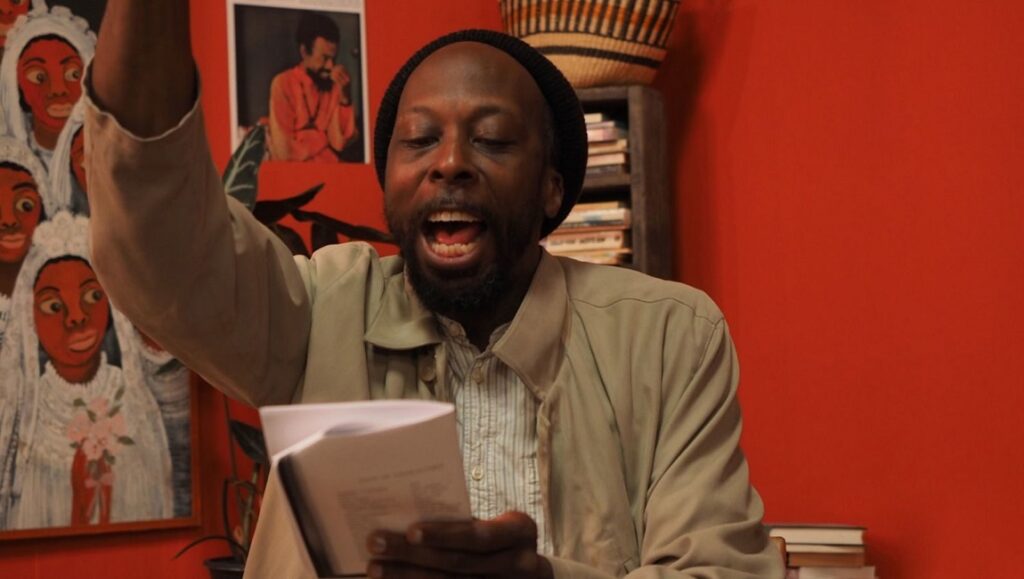While frequently interesting to watch unfold, The Inheritance has no overarching vision and thus finds much of its potential political power muted.
Inspired by both director Ephraim Asili’s personal experiences living in a Black radical collective and the formalism of late-’60s Godard (a giant poster of La Chinoise occasionally pops up to make this more blatantly obvious), The Inheritance serves as a sociopolitical update on a rather archaic mode of Marxist filmmaking, emphasizing the ways political activism is exploited and re-purposed within the tapestry of modern iconography. Mao’s Little Red Book has now been replaced with the rallying cry of Black Lives Matter, a slogan gleefully adopted by the new occupants of freshly-formed socialist shared space located on Philadelphia’s West Side. It is here that John Africa, an anarcho-primitivist leader who was eventually murdered during a police raid in 1985, founded the MOVE liberation group, an organization whose hard work and perseverance serve as a stark juxtaposition to the intellectual and aesthetic posturing provided by these younger faux-revolutionaries. When Africa’s son speaks to the group about his time growing up amid so much systemic and political violence, they could hardly be less interested; one is attempting to tune his guitar the entire speech, while the others begin to bat their eyes in other directions. All of these despondent radicals are played by actors, with real representatives from MOVE stepping in to provide a historical context to this scripted drama of interpersonal relationships, all of which eventually dissipate due to selfishness and juvenile pride.
The central tension here — between the reality of an activist’s largely boring day-to-day activities and the fiction created by those prone to moral posturing online — is a tricky one. It requires an adroit touch in order to avoid straw-manning a younger generation, or uncritically praising and promoting local advocacy. But Asili doesn’t possess the abilities needed to pull this off, often playing into a blunt, didactic tone that’s more in line with the formal antecedents he’s cribbing from. A scene of the flatmates arguing about house rules feels especially emblematic of this issue, resulting in a series of mawkish retorts and misplaced anger towards the inherent paradox of non-commercial activism: living with capital while also fighting against it. The first-time feature filmmaker has several interesting elements in play here, and he’s often able to draw humor from these rote interactions — but he also has no overarching vision by which all of these pieces can come together in an organic or meaningful way. Asili ultimately produces a product that has more functionality as an academic exercise than as legitimate political discourse, a work that any of his attitudinized characters could have created and patted themselves on the back for.
Originally published as part of NYFF 2020 — Dispatch 2.


Comments are closed.